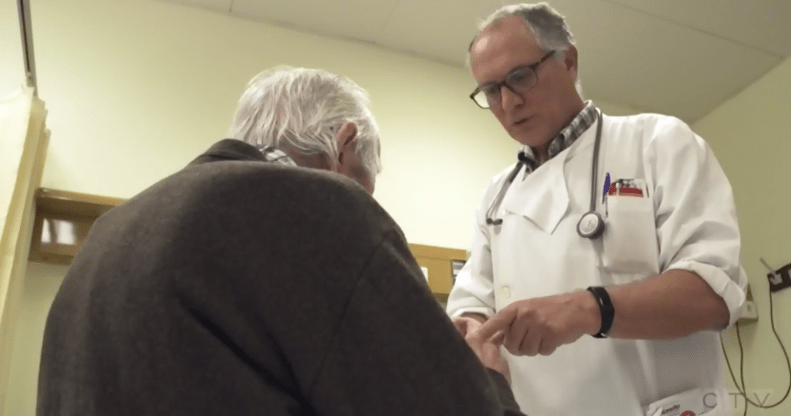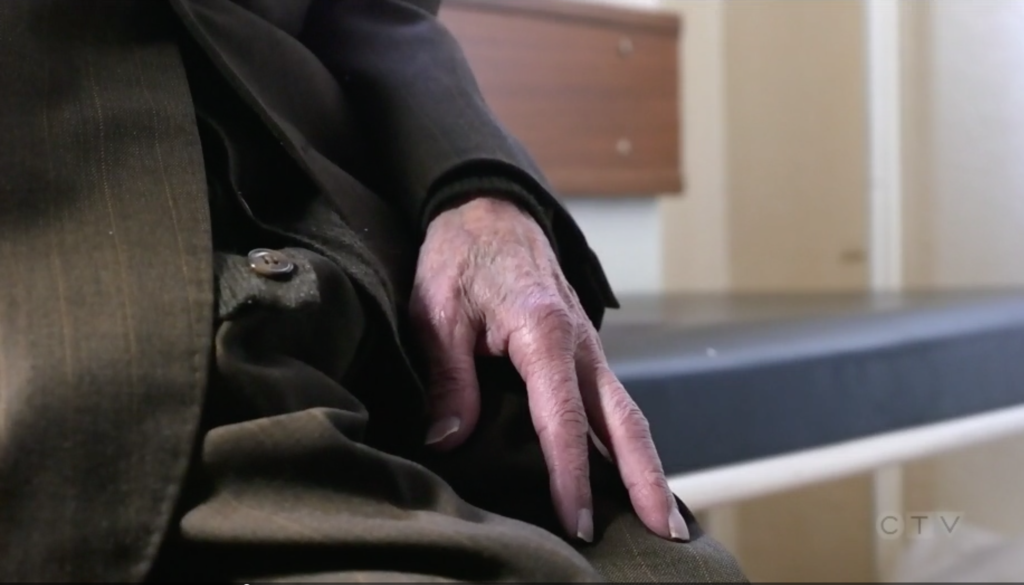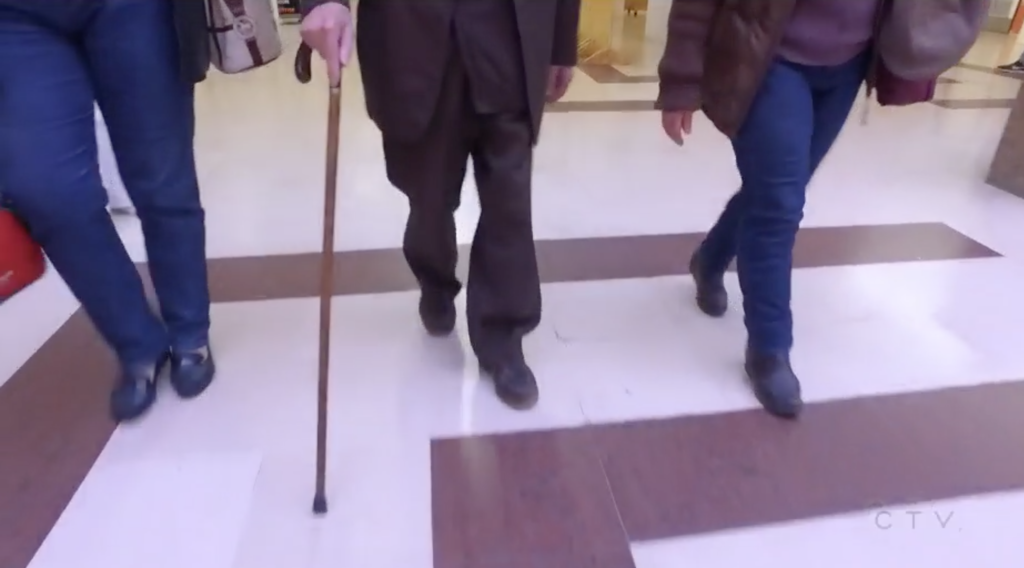A 100-year-old man living with HIV shares his secret to a long and happy life

Miguel, who is 100 and lives with HIV, with his primary physician, Dr. Henrique Santos. (Screen capture via CTV News)
Today is National HIV Ageing Awareness Day, celebrated to show that more people than ever before are living longer with HIV.
And the oldest documented person living with HIV has shared his secret to a long and happy life – drinking a cup of lemon tea before going to bed.
While medical professionals say his longevity is all down to taking his medication on the daily.
The Portuguese man is known as ‘The Lisbon Patient’ by doctors and has lived with HIV for around 15 years, all the while hitting his centennial.
What’s more, Miguel’s viral load is undetectable, he lives alone and he cares for himself, as he told Canada’s CTV News.
However, he and his family requested that the outlet not use his real name or show his face in the accompanying video as the stigma of living with HIV is still an unfortunate reality.
One that Miguel hopes to battle against.
Miguel was diagnosed aged 84.
Miguel was 84 when he went to a hospital near Lisbon with breathing difficulties.
Medics found he had rare forms of colitis and lymphoma as well as a low CD4 white blood cell count. Doctors later diagnosed him with stage three HIV.
Miguel, unclear of how he acquired it, decided he wanted to fight it.

Miguel has had HIV for at least 15 years. (Screen capture via CTV News)
His primary physician, Henrique Santos, expressed some concerns. He recalled to the broadcaster: “When this patient came to me at this age, I had some doubts that he should be treated.”
Nevertheless, the doctor went ahead and started Miguel on an aggressive course of chemotherapy. “Everything went well, but it could have gone wrong,” Santos said.
“There could have been signs of toxicity. He could have not been able to bear the treatment. He could have missed the treatment. We had to consider those scenarios.”
Fifteen years on, and it’s safe to say Miguel and the medical team made the right decision.
“The Lisbon Patient is a sign of hope,” HIV specialists say.
Furthermore, doctor Inês Pintassilgo, a medical resident who works with and has been part of Miguel’s treatment team for the past three years, attributed Miguel’s health to daily medication.
“I think he teaches us that you can live with HIV as long as you have all the other background and lifestyle and co-morbidities under control,” Pintassilgo said.
“I would say, of course, HIV maybe plays a little role in this, but if it’s well-managed and well-controlled it will not be that big of an issue.”
Miguel pops two antiretrovirals medications a day. He’s neither smoked nor drank alcohol before in his life, and both his parents lived to nearly 100.
Though, he has his own theory behind his age.

Miguel, who walked with a cane, has meant that HIV research as made great strides in developing improved geriatric care. (Screen capture via CTV News)
“The reason why I have reached such a long age is because every day when I go to bed I make a cup of lemon tea,” Miguel told CTV News, speaking through a translator.
“The good slice of lemon with the rind and the pulp and everything. It would boil for five minutes and in the end I would add a good teaspoon of honey.”
HIV specialist Giovanni Guaraldi, who works at the University of Modena in Italy, is one of a wave of scientists researching geriatric HIV care.
Life expectancy of those living with HIV has steadily increased over the years as antiretroviral therapies become more enhanced and targeted, according to one study in 2017.
Moreover, Guaraldi is among those studying and working with Miguel. Analysing his blood to track down the reasons why he had lived a prosperous life.
He said: “I believe that the Lisbon Patient is a sign of hope for people living with HIV to say you still have the capacity not just to live longer but to live in health, to experience healthy ageing.
“He is a proof of principle for us researchers and doctors to say we can provide better care to people.”

